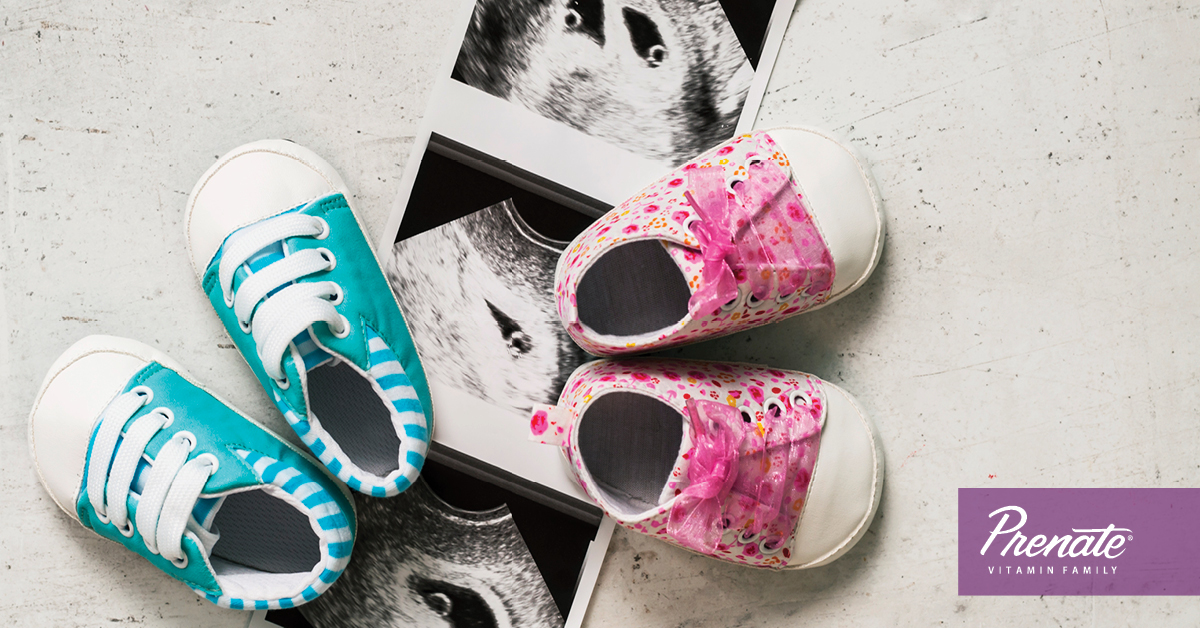Having Twins? Nutritional Adjustments You Need to Know
December 7, 2018
There’s no doubt that having twins puts additional demands on a mom’s body. Some women report that pregnancy symptoms, such as morning sickness, lower energy levels, and body aches, are all heightened when carrying twins.1
Eating well during pregnancy can help manage unpleasant symptoms for some women.2 While many women take a prenatal vitamin to help meet nutritional needs, it’s also important for them to eat healthy and whole foods.
Even though she has two babies developing, a woman carrying multiples doesn’t have to double her nutrition or caloric intake. In this post, we’ll explore some nutritional recommendations for moms who are carrying twins.
Caloric Intake
To sustain energy throughout the day and support healthy weight gain, a mom carrying twins should aim for a daily diet with a ratio of 40% fat, 40% carbohydrates, and 20% protein.2
Specific recommendations for weight gain during pregnancy are based on a woman’s pre-pregnancy weight. A woman whose weight is in the normal range with a body mass index (BMI) of 18.5 to 24.9 will have a recommended weight gain of 37 to 54 pounds during a pregnancy with twins.2 Women should eat an extra 300 calories per day per baby.1 So an expecting mother carrying twins should eat around 600 calories extra per day.1
Protein Intake
High protein foods recommended for pregnant women include beans, lentils, low-mercury containing fish, and dairy products. One gram of protein contains about four calories, which means that a woman who is carrying twins should aim for 150 grams to 175 grams of protein each day.2 A 12-ounce portion of salmon has about 75 grams of protein. There’s 14 grams of protein in a half cup of cottage cheese and 13 grams in a cup of plain low-fat yogurt.2
Folic Acid Intake
This important nutrient supports baby’s developing brain and spinal cord. Women who are pregnant with twins should get at least 1 mg of folic acid each day.2 Many doctors recommend supplementing folic acid with a prenatal vitamin. One cup of kidney beans contains 131 mcg of folate, which is about one-third of the daily recommendation for pregnant women. One cup of cooked lentils has about 40 percent of the daily recommendation. Other foods high in folic acid include asparagus, eggs, beets, leafy greens, broccoli, and citrus fruits.3
Calcium Intake
During the first trimester, consuming 1,500 mg of calcium daily is ideal for a woman who is pregnant with twins. Calcium requirements increase to 2,500 mg per day in the second and third trimesters.2
Vitamin D Intake
While it’s good to get vitamin D from the sun, it’s important to supplement this important nutrient during pregnancy. Some foods, like orange juice, cereals and dairy products, may be fortified with vitamin D. Egg yolks, cheese, and fatty fish such as salmon and tuna also have vitamin D. Twin pregnancies require 1,000 IU of vitamin D each day.2
Iron Intake
Consuming extra iron during pregnancy is important for red blood cell production and placenta development. A diet rich in iron helps prevent anemia during pregnancy.4 Women who are carrying twins should talk with their doctor about which iron-rich foods to eat and whether to take a separate iron supplement.
Advanced Nutrition Prenatal Vitamins
Talking with a dietician can also be helpful for pregnant women who want to make sure that they meet the nutritional needs of their growing babies.
The Prenate® Vitamin Family offers a line of prenatal vitamins to help pregnant women fill the gaps in nutritional needs. Prenate® Enhance is a prenatal vitamin with vitamin D, calcium, DHA, folic acid, and other critical nutrients. It is a softgel taken once daily. Prenate® Enhance is well-suited for moms carrying twins or multiples, as these women need higher vitamin and mineral levels in a prenatal vitamin. Talk with your doctor about whether adding one of the Prenate® vitamin options is right for you and your growing babies.
You Are About To Leave This Website
By clicking continue, this link will take you to a website to which Alora Pharmaceuticals Policies & Terms of Use do not apply. Alora and its subsidiaries do not control the content or accuracy of third-party websites and assume no responsibility for their use.











